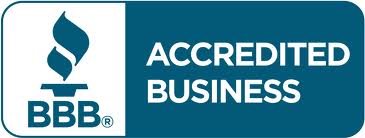An estate sale is often held when a person is looking to liquidate and sell personal items within a home.
Estate sales can take place during stressful or emotional situations such as a divorce, the death of a family member or the need to downsize before a move. The Better Business Bureau of Minnesota and North Dakota (BBB) advises consumers to do their research and choose a reputable estate sale business when deciding how best to liquidate personal property.
“Each business’s services vary, so consumers should ask about all of the details of the sale and if there will be any additional fees,” says Dana Badgerow, President and CEO of the BBB of Minnesota and North Dakota. “This process can be stressful; still, people have to be sure their interests are being protected.”
Consumers and businesses should have clear expectations when an agreement is drawn up to conduct an estate sale. Many estate sale businesses offer a variety of services before and after a sale, whether it is an initial consultation, setting up displays for the sale, or cleaning out a home after an estate sale has concluded. The BBB has received complaints from consumers about estate sale businesses, generally regarding the quality of the services offered or alleging that the details of the sale were not clearly explained.
One claim that has generated confusion for consumers is the statement, “Licensed, Bonded and Insured” that some estate sale businesses advertise.
A consumer might be led to believe a business that appraises personal property has to be licensed to do business – but this is not the case. Estate sale businesses do not have to be licensed in Minnesota or North Dakota. When deciding which business is right to conduct your sale, be sure to inquire about their background in personal property appraisals and ask them how they determine current marketplace values.
Each estate sale business has different policies and procedures when conducting a sale. A recurring pattern the BBB has noted in consumer complaints involves miscommunications between businesses and consumers in regards to the timetable for receiving a final check from a sale.
In some cases, consumers have misinterpreted contract language about the date they were to receive their check; in others, the business did not fully explain their policies in regard to issuing the final check. The BBB advises consumers to study contracts closely to ensure all financial aspects of the sale are clearly understood and acceptable.
Consumers and businesses also need to be aware of potential legal issues when discussing an estate sale. If a consumer wants to have an estate sale for a deceased family member’s items, it is important to be aware of any legally binding documents which may determine what items are sold at an estate sale.
A reputable dealer may even ask for proof of a consumer’s responsibility to contract for the sale. It is important for the business and consumer to address any and all legal issues before signing a contract for an estate sale.
Donation and clean-out services are good ways for consumers to sort through or give away any remaining items after a sale. Consumers should also ask the estate sale business for an itemized inventory list of the items sold with the price each item was sold at. This helps consumers track sales on their items and calculate the total profit from the sale.
Check out www.bbb.org when looking for a reputable estate sale business to liquidate your personal property.
 For more advice from BBB, visit www.bbb.org. The mission of the Better Business Bureau is to promote, through self-regulation, the highest standards of business ethics and conduct, and to instill public confidence in responsible businesses through programs of education and action that inform, protect and assist the general public.
For more advice from BBB, visit www.bbb.org. The mission of the Better Business Bureau is to promote, through self-regulation, the highest standards of business ethics and conduct, and to instill public confidence in responsible businesses through programs of education and action that inform, protect and assist the general public.